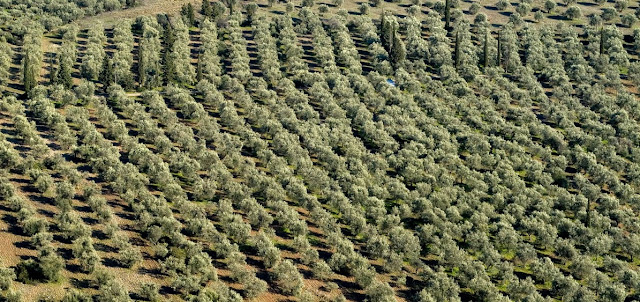In the realm of olive oil, few countries can rival Greece in terms of reputation, quality, and flavor. Renowned for its rich culinary heritage and favorable natural conditions, Greek olive oil has earned its place as a true culinary treasure. From its diverse varieties to its traditional cultivation methods, Greek olive oil stands out as a testament to its excellence and unrivaled taste.
First of all, Greek olive oil is the best because Greece is a haven of ideal conditions! Nestled in the Mediterranean region, Greece basks in a climate perfectly suited for olive cultivation. Abundant sunshine, mild winters, and a temperate climate create the optimal environment for olive trees to flourish. The Greek landscape boasts a variety of soil types, each lending its own distinct character to the olives grown there. These favorable conditions contribute to the development of olives with exceptional flavors and aromas.
Furthermore, Greek olive oil owes much of its acclaim to the diverse range of olive tree varieties found in the country. Among these, the Koroneiki and Kalamata varieties stand out as icons of excellence. The Koroneiki olives, known for their small size and high oil content, yield a bold and robust oil with hints of green grass and a peppery finish. On the other hand, Kalamata olives produce a fruity and mildly bitter oil, cherished for its deep golden hue and velvety texture. These renowned varieties thrive in the Greek soil, offering distinct flavor profiles that all olive oil enthusiasts worldwide seek.
Greek olive oil production is deeply rooted in tradition, embracing methods passed down through generations. Many Greek farmers harvest olives by hand, treating each fruit with care and attention. Using traditional stone mills to extract the oil preserves the integrity of the olives, preventing excessive heat and oxidation that can compromise the final product. This adherence to conventional cultivation methods ensures that Greek olive oil retains its exceptional quality and distinct flavor.
Greek olive oil production adheres to strict regulations and quality standards. The Protected Designation of Origin (PDO) system, established by the European Union, guarantees that olive oil labeled as "extra virgin" meets stringent criteria and originates from specific regions. This system safeguards the authenticity and purity of Greek olive oil, giving consumers confidence in the product they purchase. By upholding these standards, Greek producers demonstrate their unwavering commitment to excellence.
And last but not least, Greek cuisine holds olive oil in high esteem, utilizing it as a cornerstone of their culinary traditions. From the simplicity of a Greek salad to the complexity of moussaka, olive oil elevates the flavors and textures of countless dishes. Its inclusion in everyday cooking reflects the deep cultural connection between Greece and its cherished olive oil. This longstanding appreciation and understanding of olive oil's significance contribute to the meticulous production processes and exceptional taste that define Greek olive oil.
When it comes to olive oil, Greek varieties are heralded as some of the finest in the world. The combination of favorable natural conditions, diverse olive tree varieties, traditional cultivation methods, strict quality standards, and a rich culinary heritage sets Greek olive oil apart. Its exceptional flavor, aroma, and quality have earned it a well-deserved reputation as the epitome of excellence. As you savor the golden liquid in each drop of Greek olive oil, you embark on a sensory journey that encapsulates the essence of Mediterranean gastronomy and the mastery of Greek craftsmanship.
